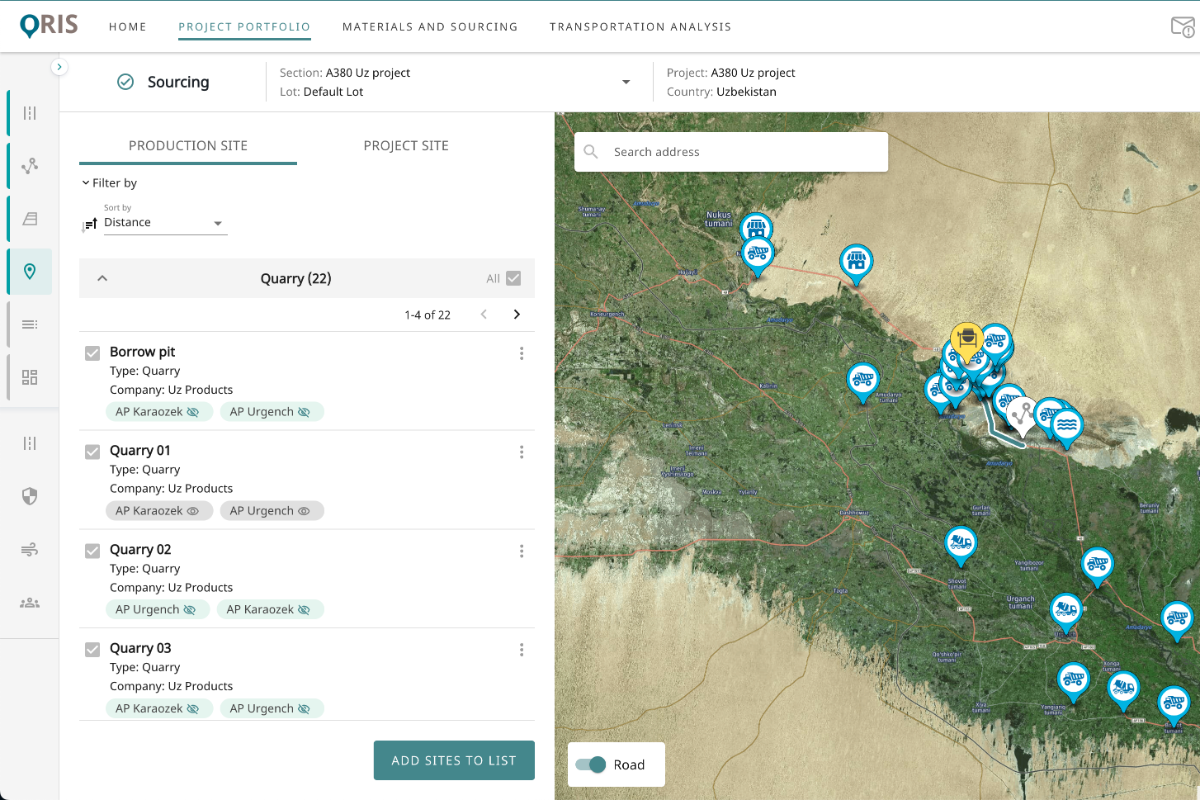

The Solutions Explorer lets you create alerts that match your needs. You can create several alerts and you will receive a notification each time a new Solar Impulse Efficient Solutions is labelled and matches your filters.
Your Search Alerts will show up here.
Sign in to create alerts for your filters and search terms.
Sign inDon't have an account?
Sign upAccess exclusive opportunities for Investor Members Only
The Investment Hub is a platform by the Solar Impulse Foundation that connects innovators with investors to fund scalable and sustainable solutions. Through tailored matchmaking, e-pitches, and a collaborative digital environment, it helps drive impactful innovation forward.
Sign in to explore a world of dynamic and high-potential investment opportunities.
Sign inDon't have an account?
Sign upApril 1, 2022
Asian Development Bank
Turtkul

This case study highlights the transformative impact of integrating digital tools like ORIS and circular economy principles in infrastructure projects, demonstrated by the A380 highway upgrade in Uzbekistan. In collaboration with the Asian Development Bank, ORIS used an AI-powered digital twin platform to optimize pavement design, prioritizing sustainability. The project incorporated recycled materials, reducing resource consumption and carbon emissions, and introduced low-carbon solutions. Additionally, it improved road safety, exceeding the UN safety target with 3-star ratings, potentially preventing over 1,800 serious injuries and fatalities. A 40-year climate change risk analysis was conducted to assess the impact of factors such as heat, frost/thaw cycles, water runoff floods, silting, and landslides, with appropriate countermeasures identified to address these challenges.
This approach resulted in a 17% reduction in carbon emissions (6.79 kilotons), saved 4.8 million liters of water, and lowered costs by $3.2 million. The study showcases how combining digital innovation with circular economy principles can drive significant environmental and economic benefits.
Whereas the choice of materials can influence up to 60% of the cost and 85% of the road project carbon footprint, material sourcing for road construction was historically considered at the last stages of a project. The complexity and the deep ground knowledge necessary for sourcing evaluations result in standardized designs based on assumptions and with little consideration for the local material availability. ORIS brings a new approach to the entire ecosystem with a deep local materials knowledge for all geographies. ORIS is a material intelligence platform gathering materials information and knowledge accessible for the construction ecosystem. Using local resources based on circularity enable to reduce the use of natural resources in road construction by up to 80% and the carbon footprint by up to 50%. ORIS enables each player of the road industry to collaborate better: - authorities to plan more sustainable road programs, - engineers to control the carbon emission of their project, - funders to follow their green finance objectives and KPIs - contractors to leverage more circular economy and recycling contents and materials suppliers to participate actively. ORIS services are paving the way to sustainable road construction providing circular, low-carbon, resource - and competitive solutions.
Share
The information set out above, is solely for the purposes of information and the Solar Impulse Foundation does not provide any guarantee as to its authenticity, completeness or accuracy. This information does not constitute investment advice or a recommendation to buy into, transact or to enter into any agreement with any of the parties or persons mentioned above. Potential investors or interested parties are solely responsible for their investment or business decisions and for performing any due diligence required by the circumstances. The innovator has asserted ownership of the intellectual property rights for images, videos, and content showcased above, affirming full and unrestricted usage rights, and has provided explicit permission for the Solar Impulse Foundation to publish such information designated as "public" in the application form.